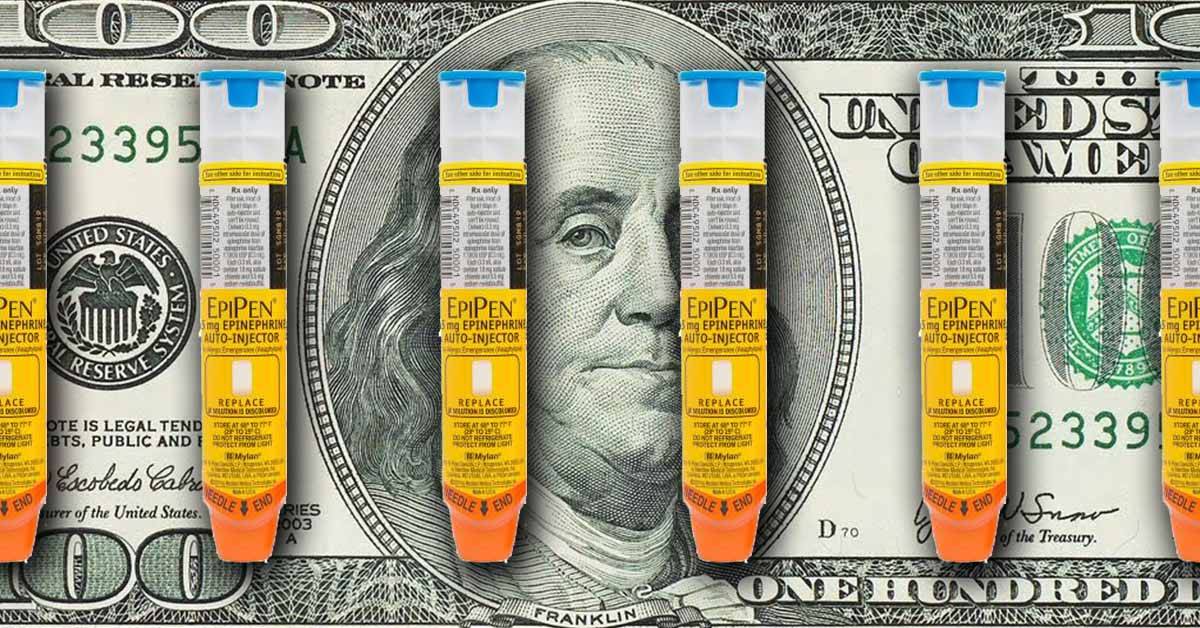Those diagnosed with a food allergy are encouraged to carry two epinephrine auto-injectors wherever they go, as anaphylaxis — a life-threatening reaction — can occur anywhere at any time. Epinephrine is the only drug that can halt and reverse the progression of anaphylaxis, but you have to have it with you and use it promptly for it to do any good.
Families of children with food allergies must often purchase multiple two-packs of auto-injectors so they are able to leave one with the school nurse and others to carry outside of school.
Although there are a number of options, epinephrine auto-injectors can be expensive, ranging anywhere between $100 and $600. Depending on income and insurance, this lifesaving drug may be priced beyond the means of many families leaving them open to dire consequences should they suffer a serious reaction. And adding even more costs, they generally expire in 12-18 months from purchase, although expired auto-injectors have been shown to still have potency beyond their expiration date.
What is the federal government doing to limit the cost of auto-injectors? Not much. But in the absence of action by Congress, five states have introduced legislation to help families afford this life-saving drug:
Colorado — On January 9, state legislators introduced a bill that would allow uninsured residents to purchase the devices at $60 or less for a two-pack and cap the price at a $60 copay for the commercially insured;
Delaware — On January 19, state legislators introduced a bill that would require health insurance plans to keep at least one formulation of epinephrine auto-injectors at the lowest level of its formulary costs;
Missouri — On January 4, state legislators introduced a bill that would cap copays at $100 for a thirty-day supply of epinephrine auto-injectors.
Rhode Island — On January 19, state legislators introduced a bill that would require health plans to cover epinephrine autoinjectors and cartridges without a copay or deductible;
Vermont — On January 5, state legislators introduced a bill that would require health insurance plans to cover epinephrine auto-injectors “without any deductible, coinsurance, co-payment or other cost-sharing requirement.”
Are there actions in your state toward making epinephrine more affordable for the millions of residents who need it? Let us know.
- States take aim at EpiPen costs — Becker’s Hospital Review
- HB23-1002 — Colorado General Assembly
- House Bill 54 — Delaware General Assemply
- HOUSE BILL NO. 342 — Missouri General Assemply
- Rhose Island: 2023 — S 0575 — Track Bill
- H.11 — Vermont Legislature





